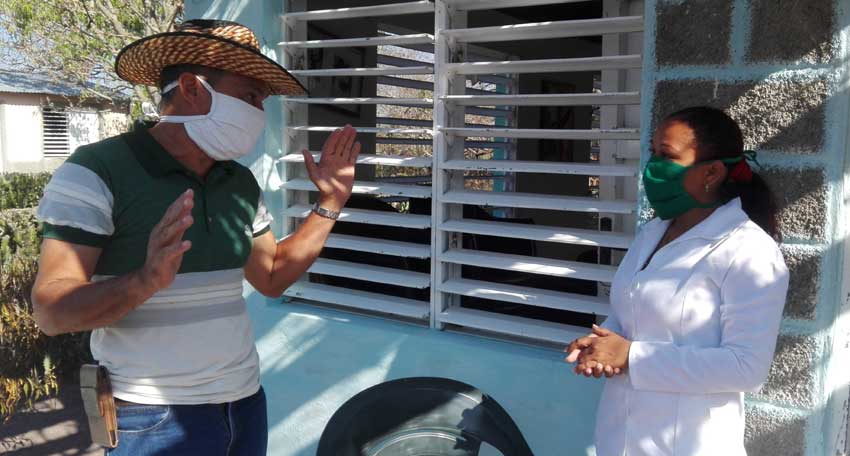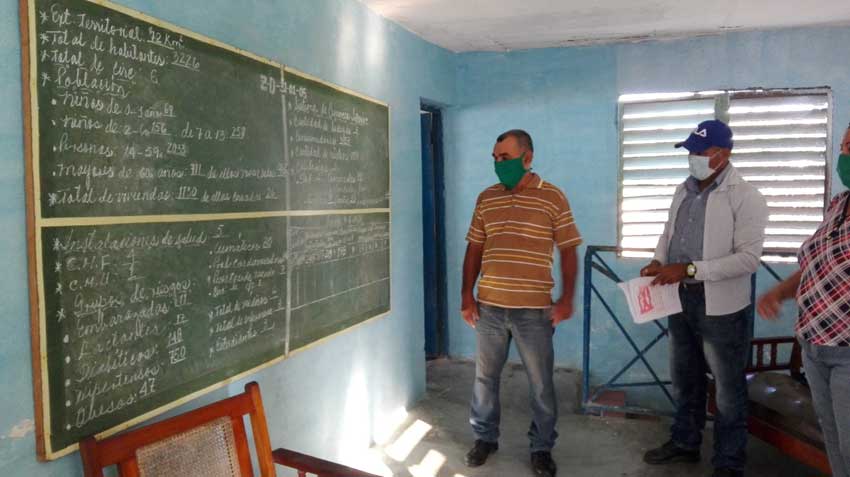
In the province of Las Tunas, there are a significant number of residents in rural areas, and state and health protection also comes to them in the presence of the new coronavirus, which has transformed people's routines and social thinking.
Las Tunas, Cuba.- There are examples in all the municipalities of Las Tunas, where command posts are activated in each settlement, which undertake various actions to take care of the lives of the inhabitants and maintain the vitality of the neighborhoods.
Noel Santiesteban Silva, president of the Popular Council 8 of San Antonio, in Jobabo, explains that the chief of the sector of the National Revolutionary Police, representatives of Health, Education and Telecommunications and a social worker also integrate that body.
"In addition, health brigades, medical students, and the Committees for the Defense of the Revolution and the Federation of Cuban Women are added.
"We started at 7:40 am. We analyzed the deficiencies of the previous day and took measures before going out to search one hundred percent of the houses.
"With the creative women's movement, protective masks have been made from scraps of cloth. The entire population has them. In the homes, there are barriers with chlorine, soap and water, and we keep watch over those who suffer from acute respiratory infections.
"Until now we have had good discipline and people are following the guidelines so that the COVID-19 does not arrive here."
With that will, Damisela Osorio Díaz, a nurse from the Medical Office 21, in the Constituency 48 of Las Margaritas, wakes up every morning.
"Every day a team goes to visit the patients. We ask how they are and if they have a cold or another symptom. We also give educational talks on the use of the mask, how to prepare the hypochlorite and the measures they should take, especially not visiting.
"We insist on caring for the elderly, who cannot even go out to the food store, because they are those who have the highest risk of contracting the disease, although we are all exposed to that."
In the Cerro de Caisimú People's Council, in the municipality of Manatí, its president, Ortelio Torres Vistorte, considers that social isolation is the main action that must be applied so that they go out into the streets to guide, persuade and help.

"Here there have not been any serious disciplinary measures to be imposed and we can dedicate time to solving various situations. Now, due to the shortage of agricultural products, we are making a visit to each farmer. The little that is harvested, we take it to the small squares and it is sold five pounds per family nucleus.
"We must acknowledge those producers, who responsibly assume their task. Also, those who participate in the active inquiries in all communities, and those who care for the elderly.
"We have 98 elderly people and 75 of them receive their food through the Family Care System. 33 are taken by a relative, 33 by social workers; and the remaining nine are in charge of Commerce." Their controlled medicines are bought by the health brigade members and taken to the patients' houses."
An isolation center has been set up in the People's Council as part of the prevention against the SARS-CoV-2 virus, but there is no concern among the neighbors. "It could pose a potential danger to people's health, but it is not. The inhabitants of the community are protected because up there, on the hill, they have created all the conditions. And the workers of the facility also isolate themselves for 14 days before coming back. There is no reason to be afraid."




